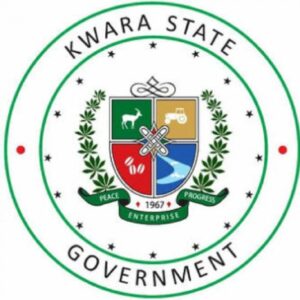
FG targets 50% increase in exclusive breastfeeding rate before 2025
The Minister of Health, Dr Osagie Ehanire, says the Federal Government is targeting an increase of 50 per cent in the rate of exclusive breastfeeding before the 2025 World Health Assembly.
He disclosed this during the Ministerial launch of the 2022 World Breastfeeding Week (WBW) in Abuja on Monday.
He was represented by the Minister of State for Health, Mr Joseph Ekumankama, where he reiterated the Ministry’s commitment toward cost-effective means to eradicate malnutrition.
He said “Our aim is to achieve the 2025 World Health Assembly target of raising the rate of exclusive breastfeeding to at least 50 per cent.
“We recommend early initiation of breastfeeding within one hour of birth, exclusive breastfeeding for the first six months of life, continued breastfeeding up to two years of age or beyond, introduction of nutritionally-adequate and safe complementary foods from six months.”
The Minister, therefore, reiterated government’s commitment to training of health professionals with information to cascade to mothers on the benefits of breastfeeding.
He added that “Health professionals play critical roles in supporting women to breastfeed, and to do this effectively, they need appropriate knowledge , such as knowledge of the health outcomes associated with different methods of infant feeding.
“They also need knowledge on the physiological process of lactation, as well as positive, non-judgmental attitude and effective communication and practical support skills.”
Sen. Ibrahim Oloreigbe, the Chairman, Senate Committee on Health, said there was need to provide an enabling environment in work places both in formal and informal sectors to promote breastfeeding.
Oloriegbe, while advocating for the passage of law and implementation of six months maternity leave for mothers, said “We need to double our work, I wouldn’t know why it is delayed, we need to see it done.
“It is one thing to have a law and it is another thing to implement it.
“And unless we have enforcement and supportive system mechanism, we will not be able to have exclusive breastfeeding at the level we want it.’’
The Minister of Women Affairs, Mrs Pauline Tallen, said the 2022 theme of the WBW ‘Step Up for Breastfeeding: Educate and Support’ is aimed at educating the public on necessary knowledge, attitude and skills to support breastfeeding women.
Tallen, who was represented by Mrs Christine Oliko, Deputy Director, Women Development, called for the need to strengthen, protect, promote and support breastfeeding for the survival, health, growth and development of the child.
Similarly, the Programme Director, Nigeria Alive & Thrive, an NGO, Dr Victor Ogbodo, said the group would incorporate the recommendations into its capacity development initiatives to improve maternal, adolescent, infant and young children nutrition in some states.
He said “The rate of exclusive breastfeeding in Nigeria was 17 per cent in 2018, increased to 29 per cent by 2021, according to national surveys.
“But that is still far short of the 50 per cent target by 2025 set by the World Health Assembly.
“We have made significant progress in recent years but we can and must do more.’’



